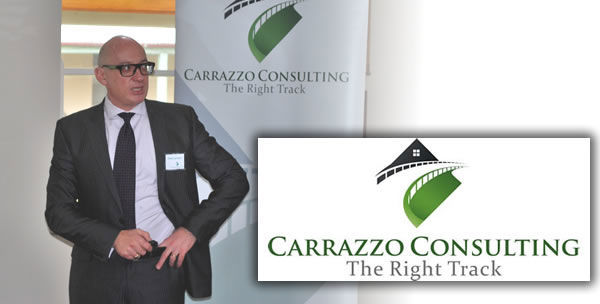Treasurer Jim Chalmers handed down his second Federal Budget last night, with many new tax announcements and initiatives.
This article is about raising the most relevant Budget items for the Racing industry and the general profile of its investors and players.

The day after the Budget the tax community is always a little short on detail as the Budget papers only go into “headline” details, so I’ll do my best to give basic details now and possibly later expand on these as more specific details are released by Treasury.
- COMPLIANCE CRACKDOWN TO CLAW BACK $9.1b IN TAX
Treasury aims to claw back $9.1 billion in unpaid tax over the next five years by cracking down on compliance with the GST, personal income tax and financial crime.
Re the GST compliance, I can reasonably speculate that this will involve a crackdown on the “enterprise” status of many activities that may not be eligible on the basis that they are “hobbies”. “Business or Hobby” is a big issue for racing and breeding participants, so the industry needs to be on notice.
The ATO will receive $588 million in funding for increased GST compliance, which is estimated to rake in $788 million in revenue next financial year alone, and $3.8 billion for the four financial years from July 1, 2023.
2.SMALL BUSINESS DEPRECIATION — INSTANT ASSET WRITE-OFF THRESHOLD OF $20,000 for 2023–24
The instant asset write-off threshold for small businesses applying the simplified depreciation rules will be $20,000 for the 2023–24 income year, this being in place of the 100% “Temporary Full Expensing” regime that ends on 30 June 2023.
Small businesses (with an aggregated annual turnover less than $10 million) may choose to calculate capital allowances on depreciating assets under a simplified regime. Under these simplified depreciation rules, an immediate 100% write-off applies for low-cost depreciating assets. The measure will apply a $20,000 threshold for the immediate write-off, applicable to eligible assets costing less than $20,000 first used or installed between 1 July 2023 and 30 June 2024. The $20,000 threshold will apply on a per asset basis, so small businesses can instantly write-off multiple low-cost assets.
Assets costing $20,000 or more will continue to be placed into a small business depreciation pool under the existing rules.
3.INCREASED DEDUCTIONS FOR SMALL AND MEDIUM BUSINESS EXPENDITURE ON ELECTRIFICATION AND ENERGY EFFICIENCY
This will be relevant for many serious primary producers in energy “transition” mode.
An additional 20% deduction will be available for small and medium business expenditure supporting electrification and energy efficiency.
The additional deduction will be available to businesses with aggregated annual turnover of less than $50 million. Eligible expenditure may include the cost of eligible depreciating assets, as well as upgrades to existing assets, that support electrification and more efficient use of energy. Certain exclusions will apply, including for electric vehicles, renewable electricity generation assets, capital works, and assets not connected to the electricity grid that use fossil fuels.
Examples of expenditure the measure will apply to include:
- assets that upgrade to more efficient electrical goods (e.g., energy-efficient fridges)
- assets that support electrification (e.g., heat pumps and electric heating or cooling systems), and
- demand management assets (e.g., batteries or thermal energy storage).
Total eligible expenditure for the measure will be capped at $100,000, with a maximum additional deduction available of $20,000 per business.
When enacted, the measure will apply to eligible assets or upgrades first used or installed ready for use between 1 July 2023 and 30 June 2024. Full details of eligibility criteria will be finalised in consultation with stakeholders.
4.FBT EXEMPTION FOR ELIGIBLE PLUG-IN HYBRID ELECTRIC CARS TO END
The FBT exemption for eligible plug-in hybrid electric cars will end from 1 April 2025.
Arrangements involving plug-in hybrid electric cars entered into between 1 July 2022 and 31 March 2025 remain eligible for the exemption.
5.ACCELERATED DEDUCTIONS FOR NEW “BUILD-TO-RENT”
PROJECTS
There is no shortage of property developers and residential property investors in industry, thus this initiative is well worth raising.
An increased capital works deduction rate will apply to eligible new “build-to-rent” projects where construction commences after 7:30 pm (AEST) on 9 May 2023.
The capital works deduction rate will increase from 2.5% to 4% per year for eligible new build-to-rent projects. Under the Tax Act, Taxpayers can claim a deduction for capital expenditure incurred in constructing capital works, such as income-producing buildings. Currently, the capital works deduction rate of 4% per year only applies in relation to income-producing buildings used mainly for industrial activities and certain buildings providing short-term traveller accommodation.
7.LOWERING THE TAX-RELATED ADMINISTRATIVE BURDEN FOR SMALL AND MEDIUM BUSINESSES
Any initiative to reduce Government business “red tape” needs to be applauded.
The government will provide $21.8 million over 4 years from 2023–24 (and $1.4 million per year ongoing) to the ATO to lower the tax-related administrative burden for small and medium businesses.
Funding includes:
- $12.8 million over 3 years from 2023–24 to trial an expansion of the ATO independent review process to businesses with aggregated turnover between $10 million and $50 million subject to an ATO audit. The trial will commence on 1 July 2024 and run for 18 months
- $9.0 million over 4 years from 2023–24 (and $1.4 million per year ongoing) for 5 new tax clinics from 1 January 2025 to improve access to tax advice and assistance for 2.3 million businesses. Eligibility for funding will be extended to TAFE institutions to improve access to tax clinic services in regional areas.
The measure also delivers reforms to cut paperwork and reduce the time small businesses spend doing taxes, as noted below:
- from 1 July 2024, small businesses will be permitted to authorise their tax agent to lodge multiple Single Touch Payroll forms on their behalf, reducing paperwork for small businesses
- from 1 July 2024, small businesses will benefit from faster, safer and cheaper income tax refunds by reducing the use of cheques
- from 1 July 2025, small businesses will be permitted up to 4 years to amend their income tax returns, reducing the burden of making revisions.
8.EXTENSION OF PERSONAL INCOME TAX COMPLIANCE
PROGRAM
The Personal Income Tax Compliance Program will be extended for 2 years from 1 July 2025 and its scope expanded from 1 July 2023.
This extension will enable the ATO to continue to deliver a combination of proactive, preventative and corrective activities in key areas of non-compliance, and to expand the scope of the program to address emerging areas of risk, such as deductions relating to short-term rental properties to ensure they are genuinely available to rent. This latter area has been subject to intense ATO scrutiny in the past few years.
To clarify or expand on any of the matters raised in this article contact Carrazzo Consulting.
By Paul Carrazzo










